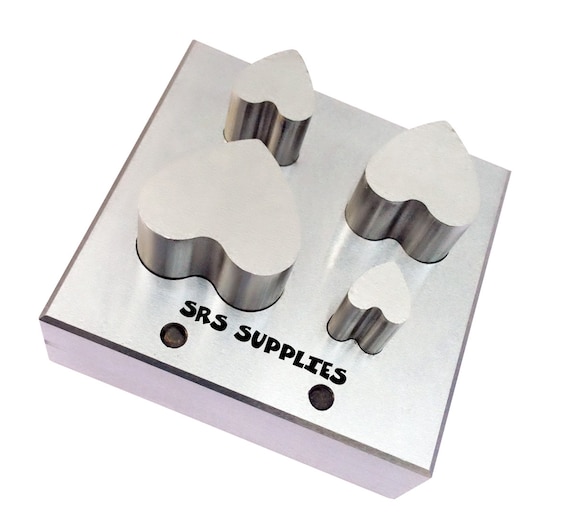I cleaned up some items from last batch and made some new discs to play with and some ear wires
First you need to know that niobium is a bit more expensive than silver eg. 30g of niobium is 1.65 per sq inch and Sterling Silver is 1.19 per sq inch - based on Rio grande who conveniently prices it out so you can compare
Rio and Reactive metals are same price for niobium - I am going to purchase the pre cut discs from Reactive - 3/4" this will save me time and waste
I also bought a heart disc cutter
 from JewelleryTool on Etsy
from JewelleryTool on EtsySo yesterday I cut some hearts (which led me to buying the heart cutter )
Sizes include ½”, 5/8”, 3/8”, 1”
The sizes I cut were 3/4" (max of my disc cutter ) then cut the hearts - also some dangles form 14g wire
Today I did some more discs - including some titanium krystal - which had some cool effects when annodized
I cut the discs and domed them -
so that you get even color I made hooks that go with the clip
you should only use like metals such as titanium or niobium to conduct the electricity - never submerge the clip - it will draw the current away - as well as if you tried to assemble your piece with copper /silver or other metals - will draw away from the current for your niobium or titanium
so my hooks are titanium - you can see the colors created on the hooks
I put the cleaned titanium krystal on the hooks - not touching
I submerged - just the discs and some wire - but not the metal clamp
the blue is at 30v
I ran it up to 100 volts just to see this does not show you the nice teal/green effect
front and back are done at same time
then I did a rainbow sort of effect - loved it
once you go to the 100v + then it stays
that color so if you want to do shapes you need to put on resists that you can stick on or paint on - that is next
Color works that you retain the highest voltage color - you can go backwards - so you would do the highest color you want with the resist on then you can go to a lower voltage to color the area you put the resist on










No comments:
Post a Comment